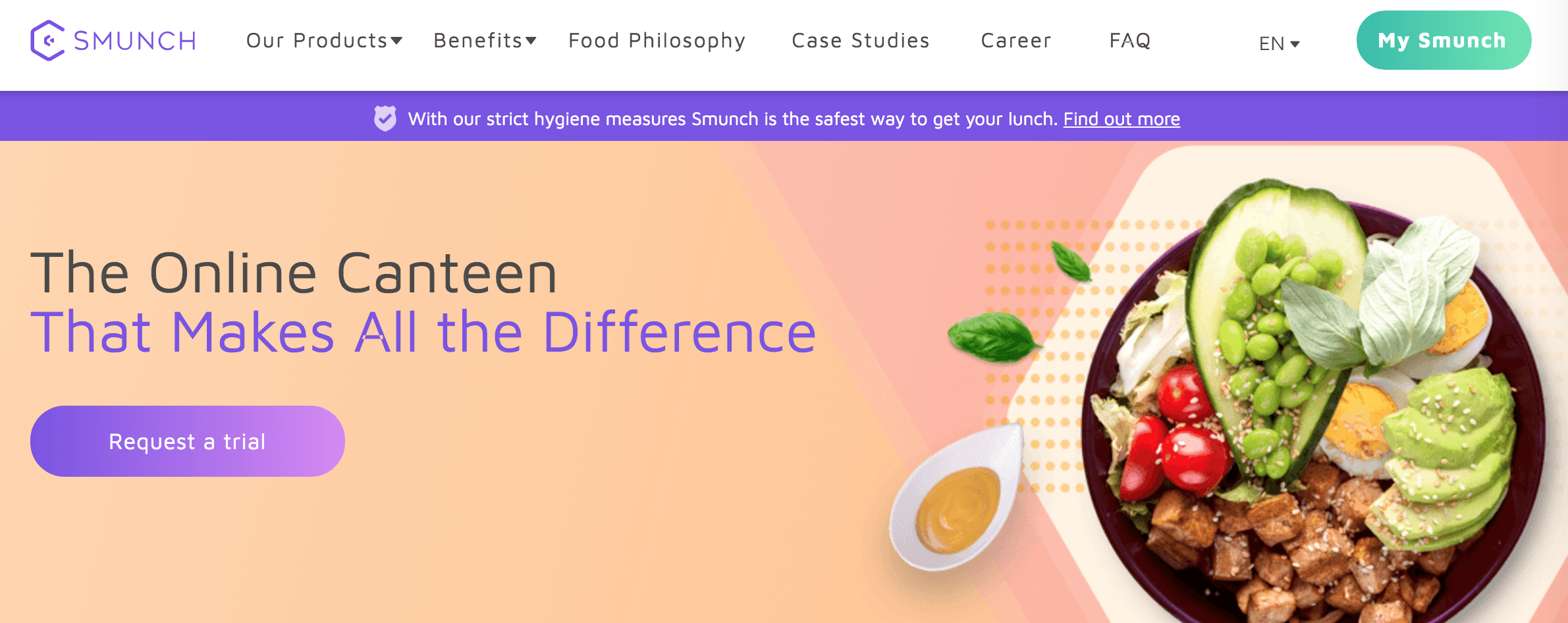On the same day Delivery Hero co-founder Lukasz Gadowski announced an investment in Finnish food delivery startup Wolt, Berlin-based Smunch - which delivers restaurant meals to teams in offices - has revealed that it has closed a Series A financing round with the help of Emmanuel Thomassin, Delivery Hero's longtime CFO and one of the fledgling company's early angel investors.
The funding round, which brings the total of capital raised by the startup to €18 million since it was founded in 2016, was led by US investor Luxor Capital Group, with Thomassin, Nosara Capital and Colle Capital chipping in.
Smunch pitches itself as an 'online canteen', delivering healthy meals from a host of restaurants to the offices of Nike, Mercedes-Benz and Wayfair and more than 100 other companies. Smunch’s delivered food can be subsidised through meal allowances, and save the employer taxes and social security payments - but perhaps more importantly on fixed costs if they're still running your typical 'corporate canteen'.
The startup currently operates in three major German cities, including Berlin, but it's looking to expand - and introduce new services.
To complement its daily delivery service, Smunch is now offering its corporate clients so-called 'smart fridges' stocked with fresh food, as well as snack boxes and fruit baskets. This is very similar to what French startup TOTEM is up to; they recently raised €4 million to 'make office cafetarias healthy again'.
Smunch co-founder and CEO Shivram Ayyagar, said:
"Consumer behavior has changed dramatically over the past decade with the rise of online food ordering and increased expectations by consumers for good quality food and service. Smunch’s model addresses both these expectations and emerging ways of working, whether remote or on-site, and that’s particularly relevant in the current environment. By removing the need for infrastructure within an office or facility, a company can be highly flexible, providing great food at 10% of the cost of a canteen and the ability to scale with the organization’s needs dynamically."
"The pandemic has demonstrated that the future of work will be different, with fewer people in offices, but creating a need to address this audience with flexible solutions, including food options they can take home with them. This phenomenon will make existing corporate canteens less viable, as there is a smaller addressable audience, yet with the same fixed costs," he added.



Would you like to write the first comment?
Login to post comments